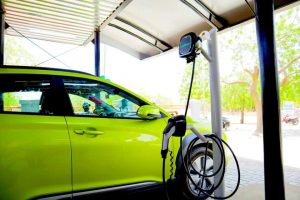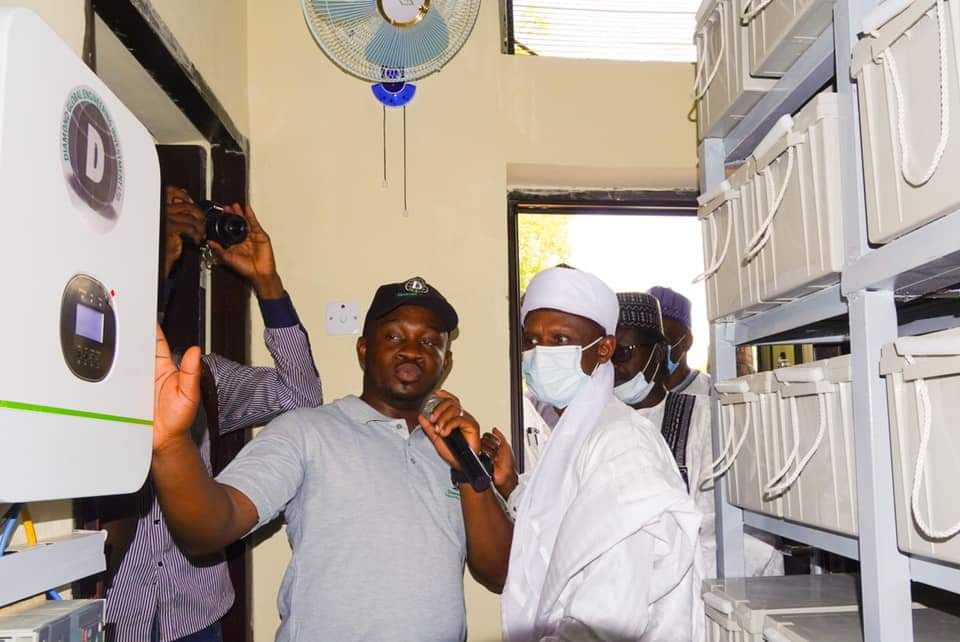“Today is the start of a new era for Nigeria. It marks a significant milestone in NADDC’s commitment to creating a world class automotive sector in the country.
“This is testimony to the government’s commitment to the adoption and promotion of advanced technology for safer, cleaner and cheaper transportation solutions”. These were the words of the Director General of the National Automotive Design and Development Council (NADDC), Jelani Aliyu in Sokoto, when Nigeria’s first Solar Powered Electric Vehicle Charging station was commissioned.
He continued “I wish to thank the Vice Chancellor, Professor Lawal Suleiman Bilbis, for all the support so far, especially the donation of land, and we look forward to an exciting Research and Development collaboration with the university.
“What has been just been commissioned today is the nation’s first 100% Solar Powered Electric Vehicle Charging Station. 100% renewable energy, 100% clean energy to power 100% Electric Vehicles. Absolutely zero emissions, zero waste: from energy generation to energy utilization.
“This Charging station is an important component of our national Vehicle Electrification Program. We are collaborating with 3 universities. Usmanu Danfodio, Sokoto, University of Lagos and University of Nigeria, Nsukka.
“Why is the NADDC collaborating with academia? This strategy is important because it is not just a charging station but a platform and a spring board for advanced research and development: to study, monitor and evaluate the entire system: the solar cells, storage units and electric vehicles in various climatic and usage conditions and hopefully develop even more effective solutions for Nigerian and African applications. The monitoring and evaluation team shall consist of experts from NADDC, Usmanu Danfodio University, Hyundai and relavant Stakeholders.
“The installed solar arrays (panels), have a capacity of 86.4 kilowatts per hour, they are coupled to three online-offline Hybrid Inverters, each one is 5KVA, they are synchronized to give a combined output of 15 KVA/48 WATTS. The systems’ energy storage is made up of 36 units of deep cycle gel batteries with an output of 48 volts/1980 amperes.

“I urge the students to see this as an unparalleled opportunity to fully understand Vehicle Electrification and all related renewable energy technologies so as to develop better and better solutions for the betterment of Nigeria. In this regard the electric vehicles will charged accordingly based on the charging system adopted. There are two types of the charging systems as far as this configuration/system is concern.
“The high level charging system which is referred to as the fast charging system which charges a vehicle within 22 hours period and also which gives a total coverage after full charging of 482 Kilometers. The second Level of the charging system takes 9 hours to fully charged.
“A protective device is also installed on the system to give a total protection to both the equipment and the cars to be charged. There is a provision of highly flexible software that gives room for locking and unlocking the charging system with an advantage of having charging schedules for each vehicle.
“The installation of the solar arrays (panels), that have a capacity of 86.4 kilowatts per hour, the online-offline 3 numbers 5KVA Hybrid inverters that are synchronize together to give 15 KVA/48 WATTS and a 36 units of deep circle, gel batteries with an output of 48 volts/1980 amperes”.













